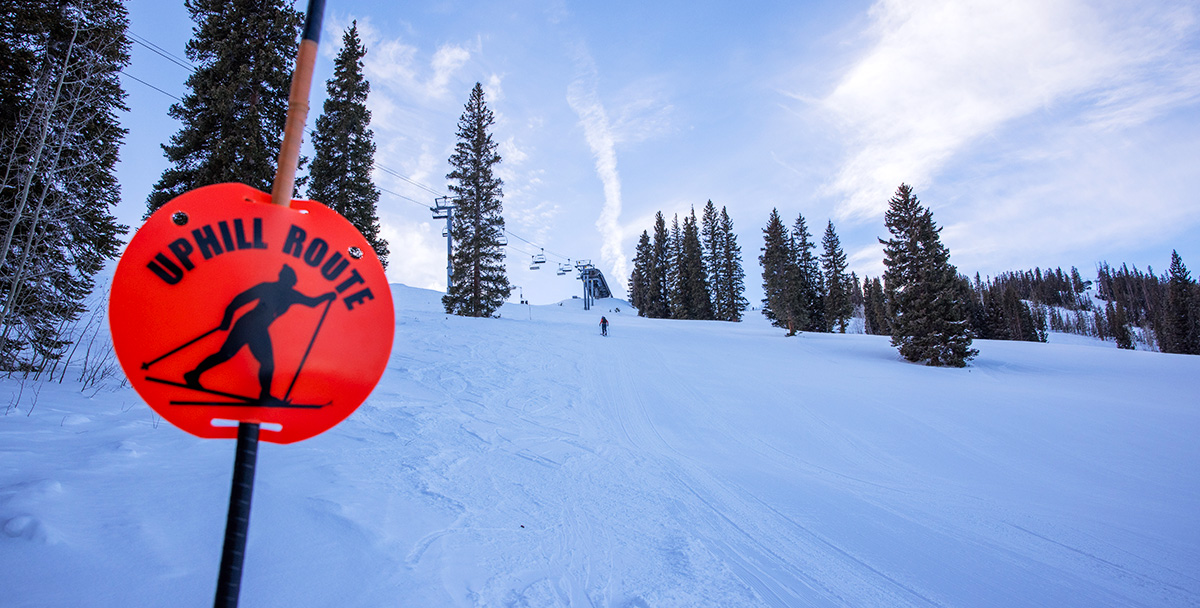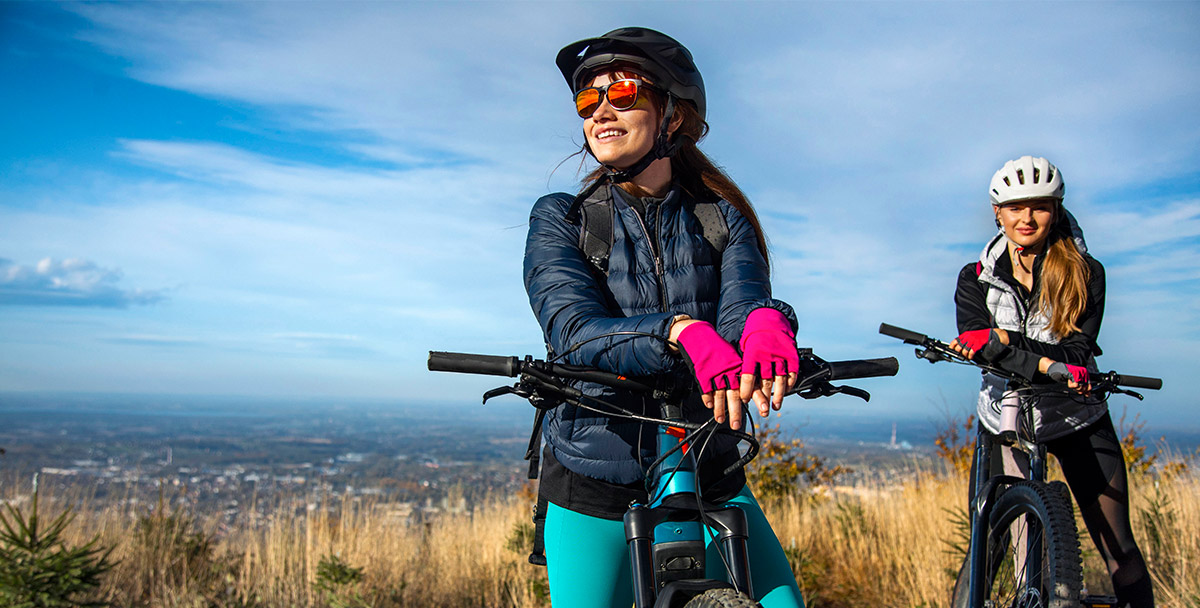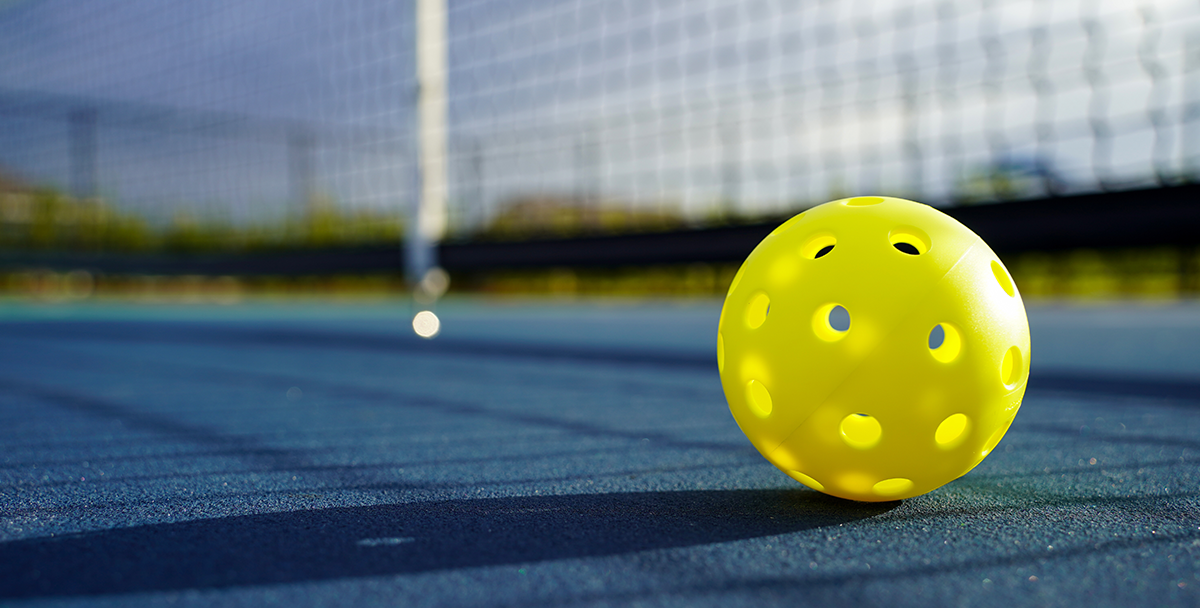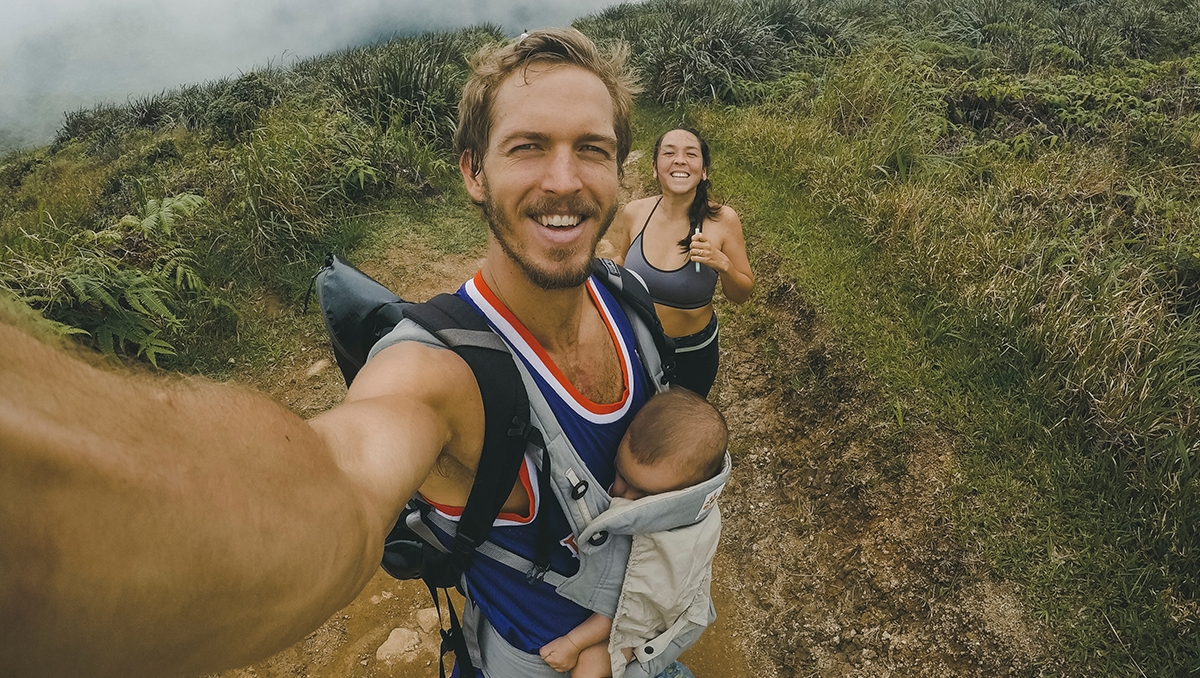Yes, Dierdre Wolownick holds the title of the oldest woman ever to climb El Capitan – the 3,000-foot vertical cliff in Yosemite – but age has never mattered to the teacher-turned-climber, who celebrates her 70th birthday this year.
“I can’t stress enough how idiotic it is to listen to that voice in your head that says you’re too old to do something,” she says. “Learn to trust yourself. Nobody’s too old for anything if they don’t think it.”
This can-do attitude applies to younger athletes or anyone just looking to get started. One recurring theme from those we interviewed is that getting into the right mindset is key.
Besides Wolownick, we talked with swimmer Elizabeth Fry and runner Ruperto Romero about their breakthrough moments, biggest challenges and the accomplishments that are possible when you don’t let your brain hold your body back.
Dierdre Wolownick: Oldest woman to climb El Capitan, at age 66
Having a son who’s one of the best climbers in the world means that climbing is part of your life, whether it interests you or not. Dierdre Wolownick, mother of Free Solo star Alex Honnold, had watched her son become increasingly obsessed with the sport until it was the only thing he talked about.
Despite a fear of heights, Wolownick decided to visit a climbing gym to try scaling a wall. “I wanted to understand his passion,” she says.
To her surprise, Wolownick, then in her mid-50s, was immediately hooked. “Once you’re on the rope and know that you can’t fall, that fear goes away,” she says.
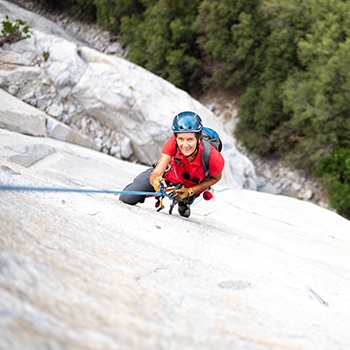
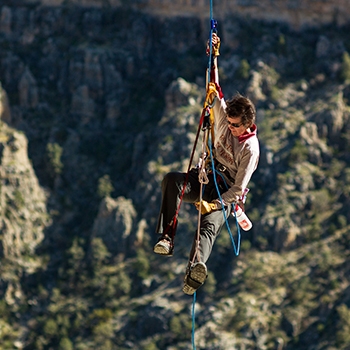
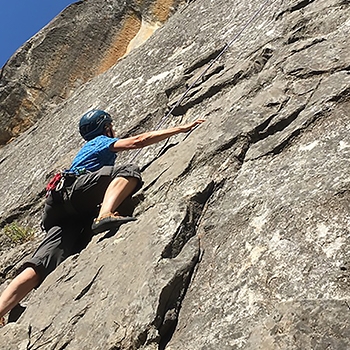
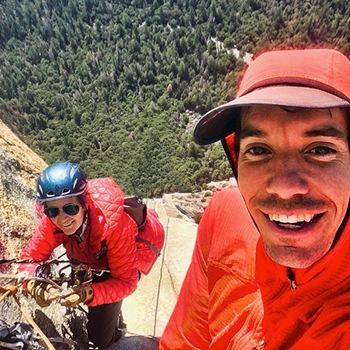
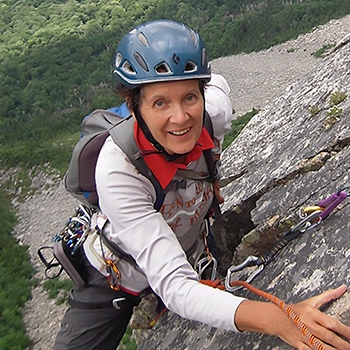
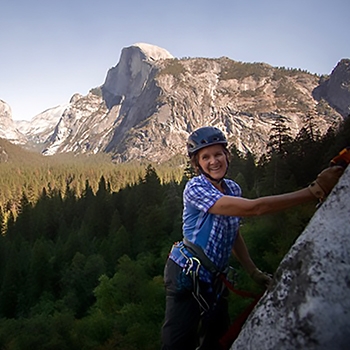
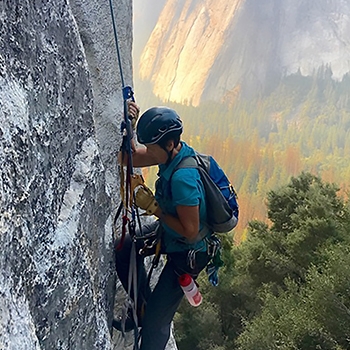
Despite having little physical strength, the former teacher began setting incremental goals. But climbing El Capitan – a colossal 3,000-foot-high vertical rock formation – wasn’t in her thoughts until she completed Yosemite’s challenging Royal Arches route with Honnold, after nearly a decade of climbing.
She asked her son whether there was any way that he might get her up El Cap. “Sure,” he replied. “But you have to learn how to jug,” a climbing technique that involves pulling yourself up the rope.
With the help of YouTube videos and climbing friends, Wolownick diligently taught herself jugging. She then trained for 18 weeks in preparation for the climb, initially on her gym’s 30-foot wall.
“El Cap is 3,200 feet, so if you do the math, I had to be able to climb it 100 times. But doing it just once wiped me out,” she says. “Eventually, I worked up to doing it eight times in rapid succession, but it was hard.” After that, Wolownick headed to Yosemite three days a week to train on the walls of El Cap, climbing fixed ropes, largely on her own.
The climb with Honnold took 13 hours and nearly broke Wolownick. “Near the top, we reached a ledge and I was exhausted to the point of tears,” she says. “Alex had taken off his harness and was bouncing around like a puppy, shouting, ‘Mom, look how beautiful this is!’ It was torture and heaven – you don’t want to watch your child bouncing around a ledge not attached to anything.”
As she fought her way up the last few rounded, slippery slabs at the top of the rock formation, Wolownick says that her mind was screaming I did it! but only inside her head. “I didn’t have enough puff to say anything out loud.”
Wolownick documented her climbing journey in her book, The Sharp End of Life: A Mother’s Story. “I learned to beat back my fear,” she says. “I learned to dig deep, how to trick myself and keep going. If you think you can, you can. It’s been a steep learning curve, and no doubt it will be to the finish.”
Wolownick turns 70 in September; to celebrate, she plans to climb El Cap again on her birthday. This time, though, she intends to pop some Champagne at the summit.
Elizabeth Fry: Oldest person to swim the Oceans Seven, at age 60
Some people swim lengths. Elizabeth Fry swims channels. She set a mark recognized by the Guinness World Records™ for the oldest person to complete the Oceans Seven challenge, a series of seven open-water swims across channels and straits around the world.
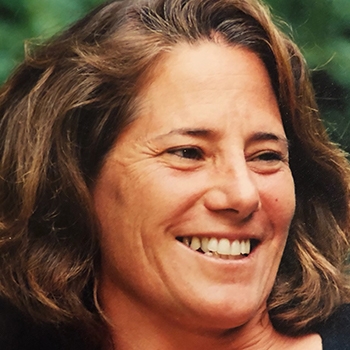
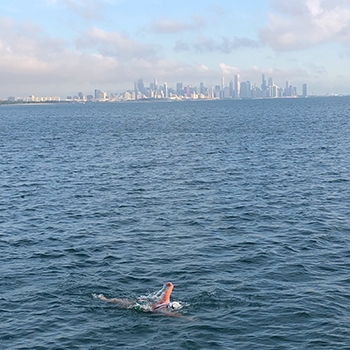
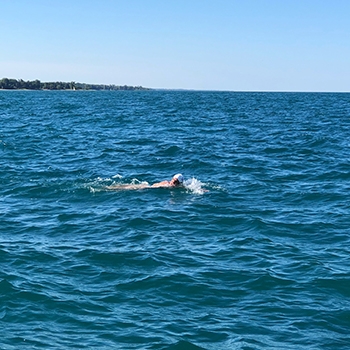
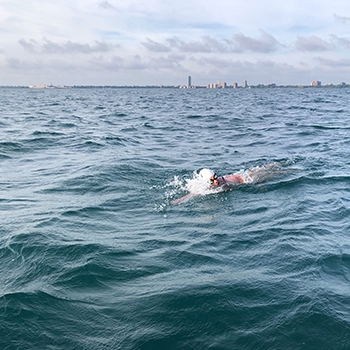
Fry grew up in Long Beach, New York, where the rolling Atlantic surf was her teaching pool. “My dad was English, and he’d say, ‘You’re not really a swimmer unless you swim the English Channel,’” she says. Years later, when Fry hit her 40s and rediscovered the joys of swimming, she found her chance as part of a relay team taking on the 21-mile swim from England to France.
“The water in England’s Dover Harbour seemed magical, and I found myself looking forward to every training session,” she says. During the team swim, she wished she could keep going when her time was up. “It was then I knew I was coming back,” she says.
She returned three years later to tackle the English Channel solo in conditions she describes as “like a washing machine. At times, I wasn’t sure if I was pulling water or it was pulling me, but it was an amazing experience.”
Over the following years, Fry ticked off four more of the Oceans Seven, leaving two she aimed to complete in 2019. When she swam Cook Strait – 14 miles wide between New Zealand’s North and South islands – at age 60, she says her speed was as fast as it had been in her 20s.
“I don’t feel like I’m slowing down,” she says. “If anything, I’ve become more efficient. That’s what happens as you get older. You have the ability to break things down differently in order to get the most out of what you’re doing. You eat better, train better, you do more cross-training, you think about where your hands are going in the water.”
Fry squeezes in her training around her full-time job, often catching a train to get to her nearest pool to swim for 15 to 30 minutes before work. On weekends, she tries to do longer swims in the Long Island Sound. “Sometimes you just have to take what you can get to keep the muscle memory going,” she says.
Her seventh swim, the North Channel between Northern Ireland and Scotland, was the hardest, though not because of age. “The jellyfish were especially scary,” she says. “I have asthma, so my biggest fear was would I survive the stings?”
She was stung within the first 10 minutes, but thanks to a supportive crew, she ploughed on. “For me, it’s less about whether I finish a challenge – it’s more ‘Did I face those jellyfish in that freezing cold water and rise up?’” she says.
Fry’s advice to anyone setting a goal is to say it out loud. “The moment I said I was doing the English Channel, the whistle blew and the train pulled out of the station,” she says. “So be brave and say it.”
Ruperto Romero: Winner of the Angeles Crest 100-mile race, at age 55
For someone who didn’t start running seriously until he was in his 40s, Ruperto Romero has shown just what can be achieved when you dedicate yourself to hours of not only physical training but mental training too.
“When I started running, I was doing it for fitness,” he says. “But then I began to see the possibility of winning. I believe that whatever you put into your head is possible to accomplish. When my way of approaching races changed, everything changed.”
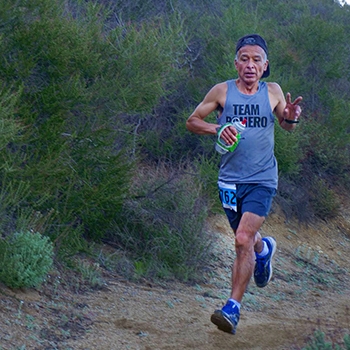
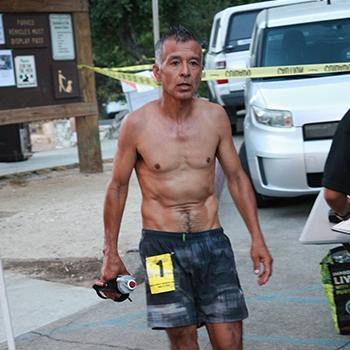
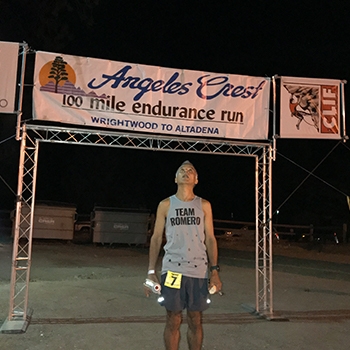
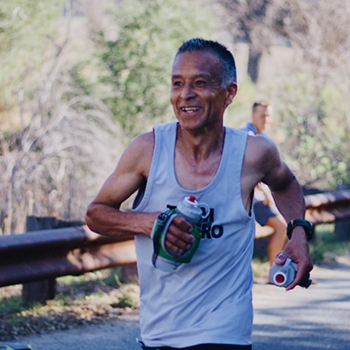
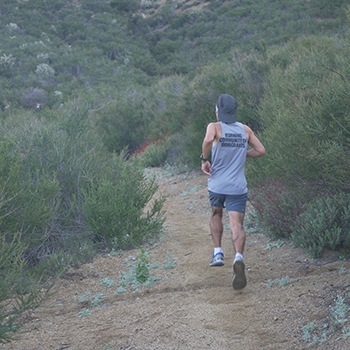
Romero was born in the small town of Jalpa, Zacatecas, in Mexico. He immigrated to California at age 18 and found the transition hard.
“Trying to make a living while not being able to speak English was almost impossible, and I grew depressed.” It didn’t help that he was also battling with self-confidence and was unhappy with his appearance.
It led to struggles with alcohol and drugs, but he triumphed over them with the help of his family. “Dealing with that pain made me mentally stronger, which helps when you’re running a 100-mile race against 20-year-olds,” he says.
Romero’s journey to ultramarathons began in 2004 when a friend asked him to help him lose weight in order to run the Los Angeles Marathon. He ran the 26.2-mile course with his friend, which led to more marathons and a longer 50K trail race in Santa Cruz.
“The experience of running farther than 26.2 miles made me feel extremely proud of myself,” he says. “That, combined with the beautiful scenery, simply captivated me. From that day, I knew that trail running was what I needed to do.”
He was soon racing monthly, running an hour every day after work and building up the distance so he could run the challenging Angeles Crest 100-miler. “During the race, the smell of wood burning on the campsites I ran through reminded me of my hometown, of my mom cooking for us,” he says. “I became addicted to that smell. It gave me peace.”
Over the years, as his speed and endurance increased, he began to move up the rankings. He’s now won the Angeles Crest 100 two times, most recently in 2019 at age 55, which he says was “like something from the movies.”
“I feel in better shape than 10 years ago,” he says. “It’s never too late to start. You just have to believe in yourself. When you do that, everything changes. The pain of climbing those mountains becomes tolerable because you’re enjoying it.”
